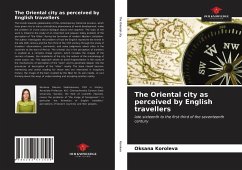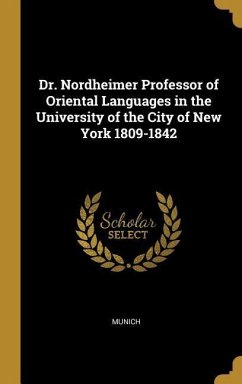The trends towards globalisation of the contemporary historical process, which have given rise to many contradictory phenomena of world development, make the problem of cross-cultural dialogue topical and cognitive. The topic of the work is linked to the study of an important and popular today problem of the perception of "the Other" during the formation of modern Western civilization. The author investigates the problem of how the English represent the Orient in the late 16th century and the first third of the 17th century through the study of travelers' observations, comments, and value judgments about cities in the countries to the east of Persia. The oriental city in the perception of travelers is studied as a complex image system, which includes the images of the carriers of power, the inhabitants of the city, the notions of the morphology of urban space, etc. This approach allows to avoid fragmentation in the study of the mechanisms of perception of the "alien" and to penetrate deeper into the processes of description of the "other" reality. The book should become interesting and useful reading for those who are interested in imaginary history, the image of the East created by the West for its own needs, or just thinking about the ways of understanding and accepting another reality.
The trends towards globalisation of the contemporary historical process, which have given rise to many contradictory phenomena of world development, make the problem of cross-cultural dialogue topical and cognitive. The topic of the work is linked to the study of an important and popular today problem of the perception of "the Other" during the formation of modern Western civilization. The author investigates the problem of how the English represent the Orient in the late 16th century and the first third of the 17th century through the study of travelers' observations, comments, and value judgments about cities in the countries to the east of Persia. The oriental city in the perception of travelers is studied as a complex image system, which includes the images of the carriers of power, the inhabitants of the city, the notions of the morphology of urban space, etc. This approach allows to avoid fragmentation in the study of the mechanisms of perception of the "alien" and to penetrate deeper into the processes of description of the "other" reality. The book should become interesting and useful reading for those who are interested in imaginary history, the image of the East created by the West for its own needs, or just thinking about the ways of understanding and accepting another reality.
The trends towards globalisation of the contemporary historical process, which have given rise to many contradictory phenomena of world development, make the problem of cross-cultural dialogue topical and cognitive. The topic of the work is linked to the study of an important and popular today problem of the perception of "the Other" during the formation of modern Western civilization. The author investigates the problem of how the English represent the Orient in the late 16th century and the first third of the 17th century through the study of travelers' observations, comments, and value judgments about cities in the countries to the east of Persia. The oriental city in the perception of travelers is studied as a complex image system, which includes the images of the carriers of power, the inhabitants of the city, the notions of the morphology of urban space, etc. This approach allows to avoid fragmentation in the study of the mechanisms of perception of the "alien" and to penetrate deeper into the processes of description of the "other" reality. The book should become interesting and useful reading for those who are interested in imaginary history, the image of the East created by the West for its own needs, or just thinking about the ways of understanding and accepting another reality.








